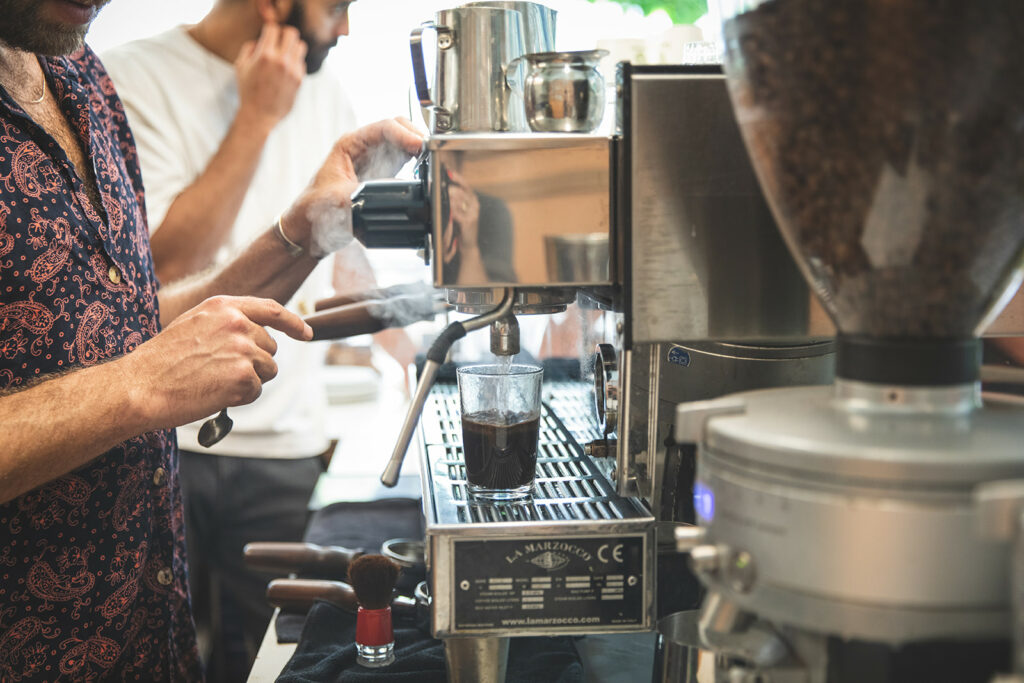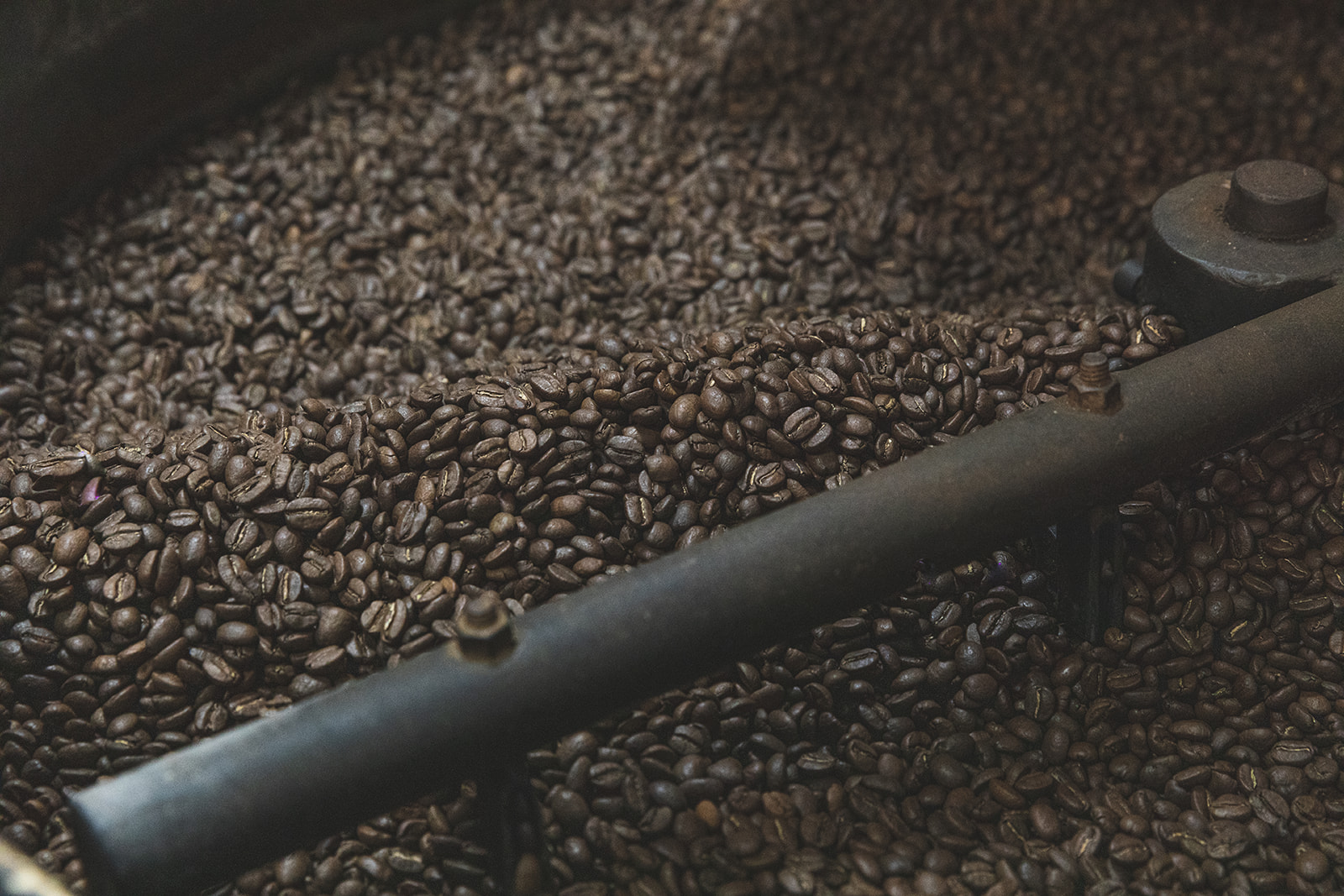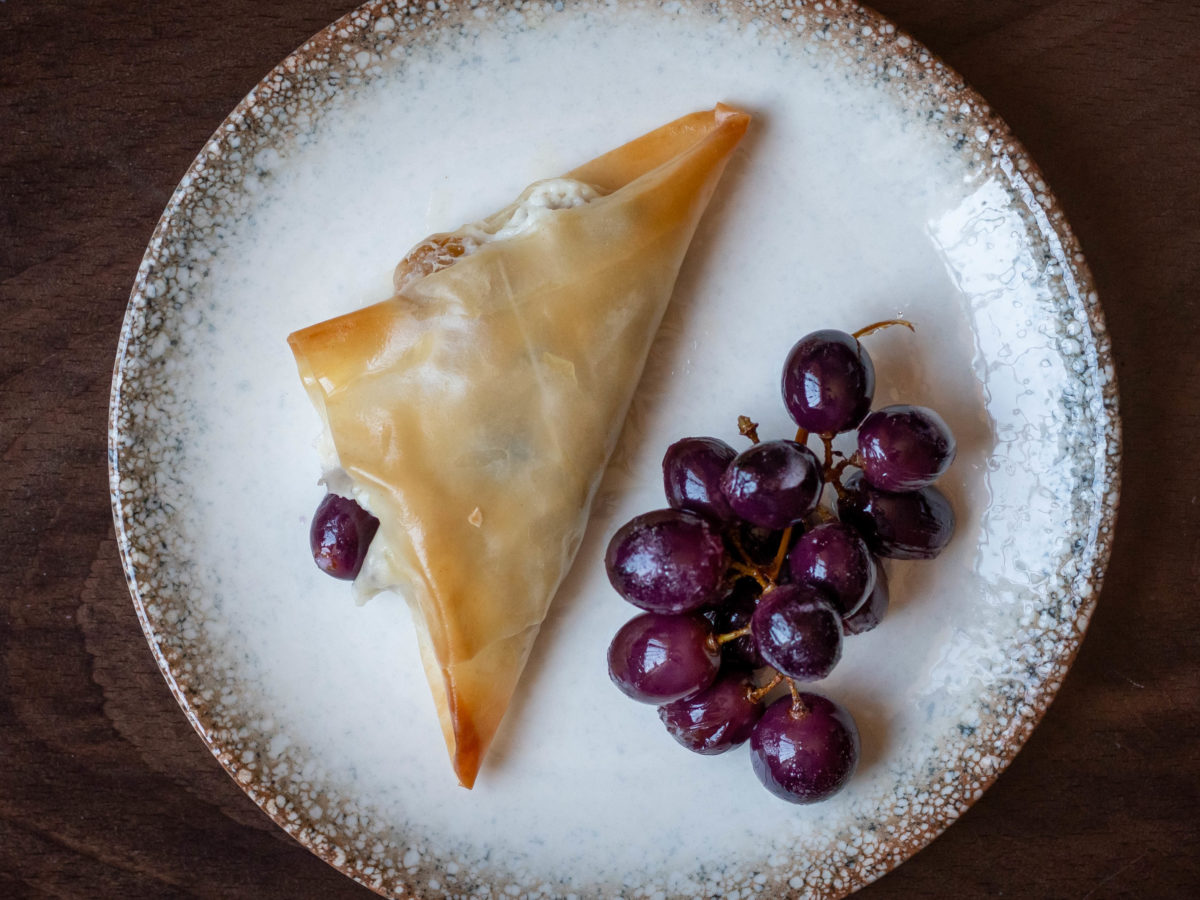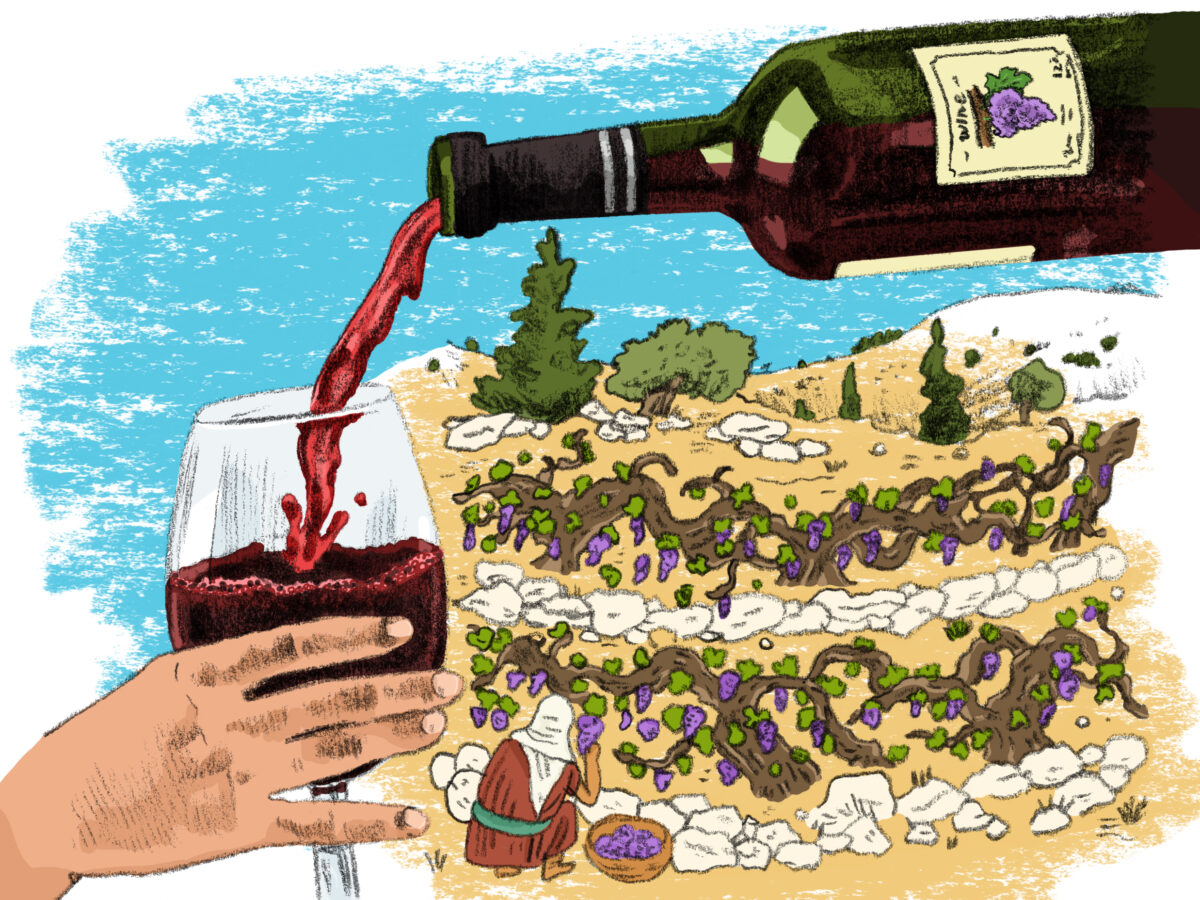We asked Noa Berger, who studies the coffee market and coffee expert Lior Essel (who auditioned for “Master Chef” with black coffee) to dig deep into “cafe shachor.” They returned with an article and a tight menu of several roasts that express the regional traditions of this drink. Here’s the guide they wrote:
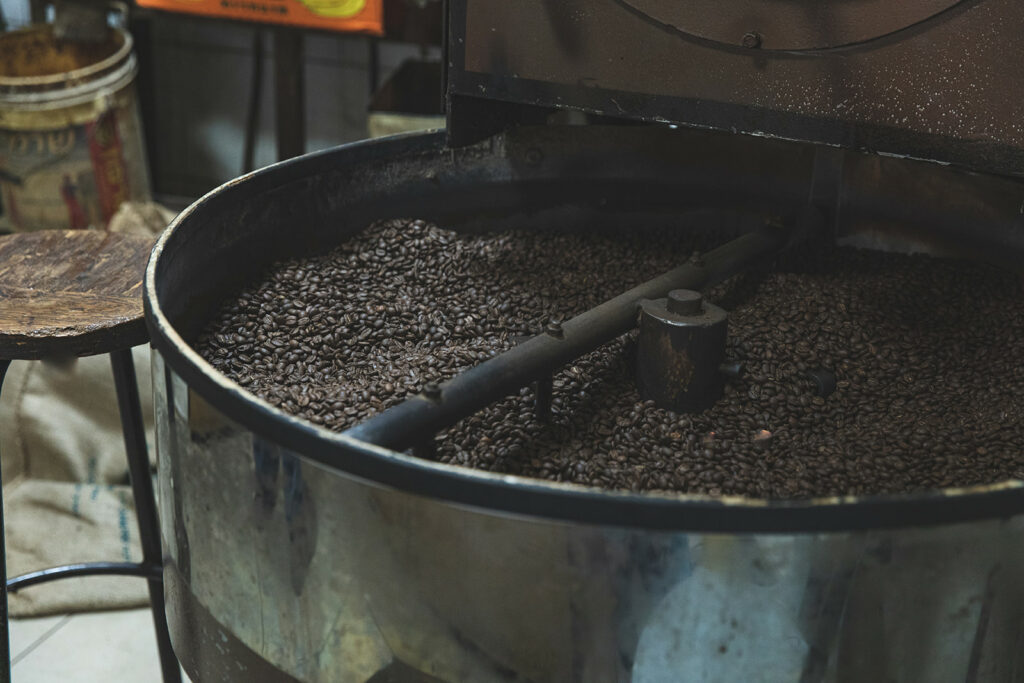
First Tasting: Industrial Turkish Coffee
Nakhly vs. Elite
Elite’s Turkish coffee
Elite started marketing its “Turkish Coffee” in 1961, to answer a rising demand by immigrants from Arab countries, the Balkans, and the Middle East. Until then, the coffee shops in the first Jewish settlements served European style tea and coffee.
The “Turkish” label distanced the beverage from regional connotations in the Israeli mind, and the quick preparation method — simply mixed with boiling water instead of lengthy cooking — made it modern and accessible for the new Israelis. Today, it is the most popular coffee drink in Israel, and accounts for 50% of consumed coffee beverages.
Turkish coffee with cardamom by Nakhly
Nakhly was founded in the early 1970s by Sobhi Nakhly, who learned the secrets of coffee roasting from Iraqi immigrants in Haifa, where he worked as a taxi driver. He started by roasting coffee at home, selling it to his friends and neighbors in Shefa-Amr. Not long after, he opened a roasting shop of his own, which soon became a factory which manufactured the first coffee brand with cardamon to be sold in grocery stores and supermarkets.
Later on, Sobhi’s nephews founded the El Nakhly brand (known in Israel as “green Nakhly”), which is still sold in the same green-and-white packages of the original Nakhly brand. Sobhi’s son kept the name “Nakhly”, and chose a red aluminum packaging. While El Nakhly became a popular commercial brand that is marketed as “traditional,” the Nakhly company began importing specialty coffee beans and invested in automation, quality control and capsules. Today it is the second largest coffee brand in Israel: the Shefa-Amr factory manufactures about 350 tons of packed coffee a month, sold by 5000 retailers
Second Tasting: Small Coffee Roasting Shops in Northern Israel
Cafe Talek vs. Cafe Haifa
Cafe Haifa
Mustafa Abu El-Ardat founded Cafe Haifa in 1982, in Wadi Nisnas, a 19th century working class neighborhood transformed in recent years into a highly attractive culinary destination. It took him nine months of trial and error to find the right blend, based on Arabica and Robusta beans. This local institution is included in many culinary tours of the area. Besides coffee, customers will also find traditional sweets – homemade carob concentrate, halwa from sweet potato sugar, and “heaven” – a roll of dried fruit with nuts.
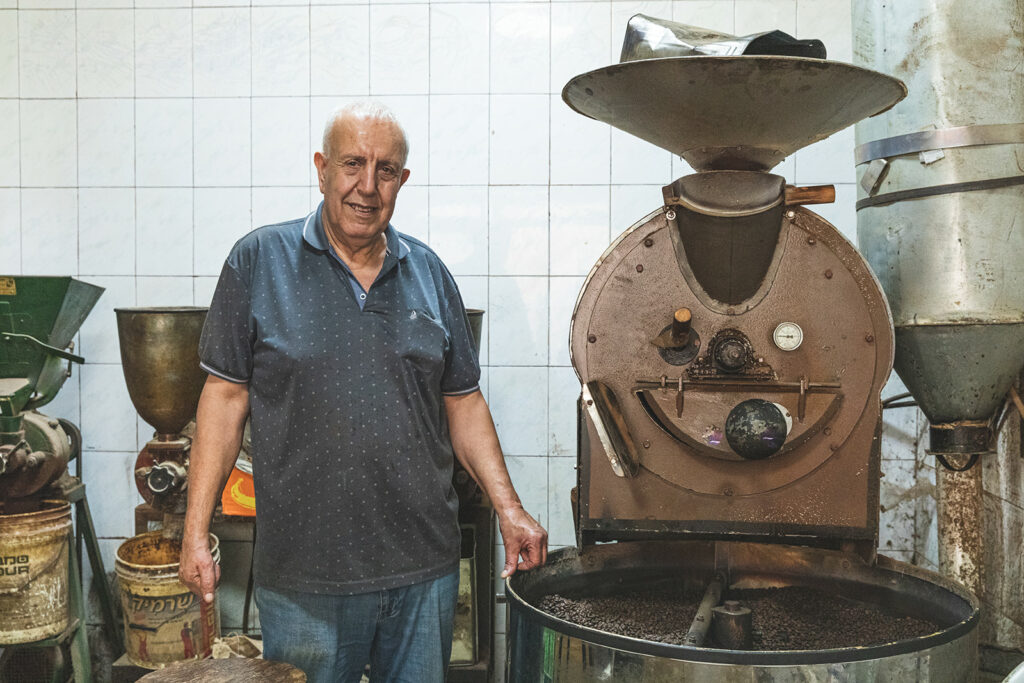
Talek Cafe
Talek is a roasting shop and coffee shop in Haifa’s Talpiyot market. Its founder, Tal Friedman, is a former agriculture teacher and anthroposophical educator whose passion for coffee has led him to a career change. He began his new professional path in the Cafe Anin roasting shop at Kiryat Tivon. When he decided it was time to open a place of his own, he first attempted to make 100% Arabica blends, but concluded that a 10% Robusta (Coffea canephora) beans was crucial for the body and bitterness associated with Turkish coffee. Talek’s coffee creates a balance between the light roasting and 100% Arabica blends typical to specialty coffee, and the flavors loved and known by the Israel palate, which tends to favor dark-roast coffee.
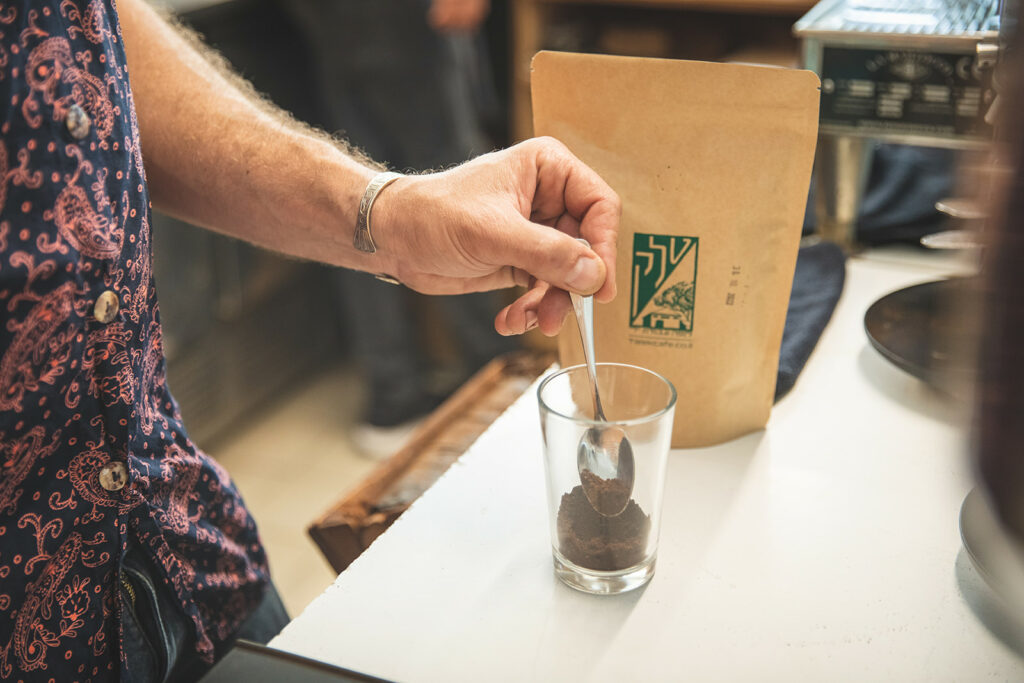
Third Tasting: Spiced Coffee
Geranium vs. Hawaij
The combination of Turkish coffee and spices has a long history — first and foremost with cardamom, which adds a pleasant aroma and may also help temper the acidity of the drink. In this tasting, we chose to focus on two less familiar spices.
Coffee with Hawaij
In Yemen, coffee is often served with hawaij, a spice mixture typically made of ground cloves, cinnamon, cardamon, ginger, and nutmeg.
Coffee with Geranium
In Libya, the addition of geranium water or geranium infusion is used, adding a flowery aroma. The Jews of Libya brought this tradition to Israel, and one can still find places to try it.
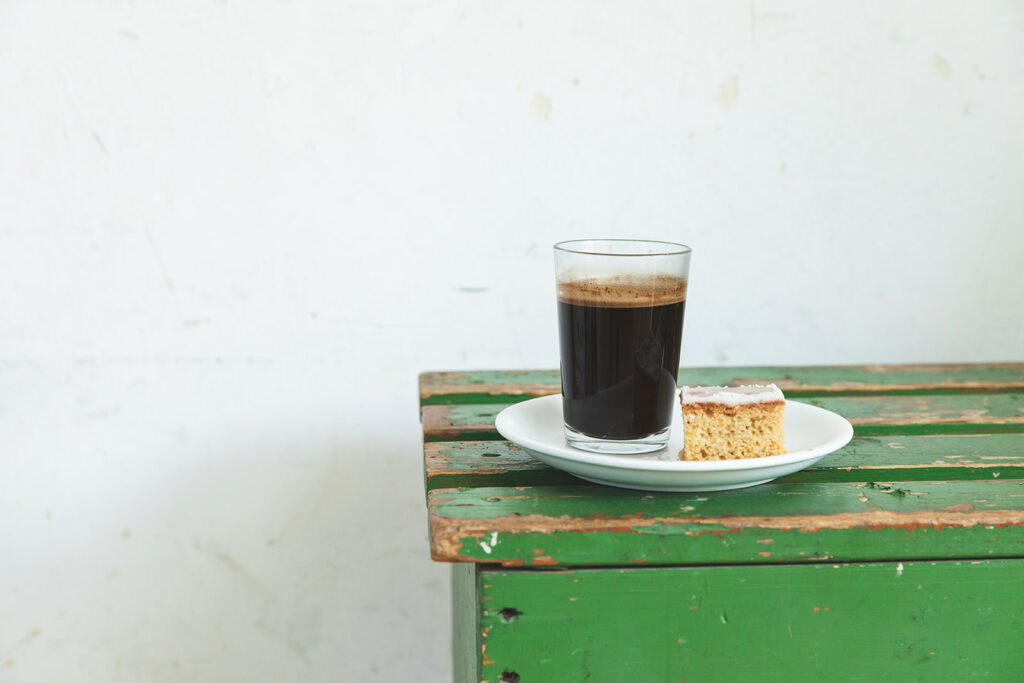
Fourth Tasting: Coffee and Acidity
Colombia Specialty – Turkish coffee with vs. without starter
Specialty coffee from Columbian Caturra Arabica beans, lightly roasted in the Israeli roasting shop AGROCAFE
The typical bitterness of Turkish coffee is, in part, a result of dark roasting. In recent years, some Israeli roasting shops began offering Turkish coffee from the specialty movement, which is associated with gourmet consumers, filter-style drinks, and light roasting, resulting in fruitier and sourer flavors. The Tel-Avivian HOC, for example, served coffee by the Danish roasting shop La Cabra, slowly brewed in a cezve over hot sand.
Coffee Starter
Some Arab families in Israel keep a “coffee starter” — leftover coffee kept in a pot to ferment or in the freezer for up to 20 years. The person preparing the coffee adds a small amount of this starter to achieve deeper flavors and a more pronounced acidity. At special events, coffee preparation can take up to four days, as the coffee is brewed over low heat, filtered, enriched with coffee starter, allowed to rest, and cooked again.
